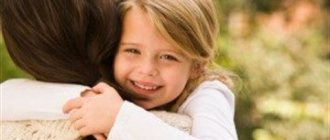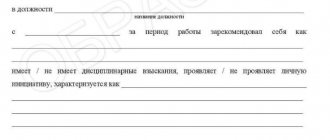The Housing Code of the Russian Federation regulates the residence of people in their own house or apartment in accordance with their rights. If there is a violation of these rights, for example, noisy neighbors, continuous repairs, rowdy behavior and drunkenness, then this becomes a reason to contact the official authorities. Solving problems with neighbors does not always happen amicably; one of the effective ways to deal with it is to write a complaint to the housing inspectorate against your neighbors.
When is it necessary to contact the housing inspector?
Citizens can file complaints with the Housing Inspectorate for the following reasons:
- inaction of the management company regarding problems with neighbors;
- poor quality work of the management organization - for example, errors in calculating housing and communal services payments, lack of necessary repairs, flooding of basements or leaking roofs, lack of major repairs;
- it is necessary to put into effect the instructions of the authorities on housing maintenance;
- it is necessary to consider complaints and statements of any nature regarding the condition of apartments and communication between residents.
User comments
without author At the end of January, 01/20/16. There was a roof leak at the address: ********, st. row. L. ******* d. ** apt.**. The duty brigade was immediately called. The plumber discovered a leak. In the morning, January 21, 2016, I was in the housing and communal services department. Only 19.o after long calls, master ******** G.V. On 02/12/16 I drew up a damage report. With my repeated appeals to the Housing and Communal Services Manager ********, I did not receive any assistance, only a promise that the company that did the roof repairs should contact me. Since I cannot continue to live in such a room, I begin the repairs tomorrow 03/19 .2016. A photo will be attached to the application. I ask for compensation for expenses and moral damages Reply
Application procedure
The procedure for contacting the Housing Inspectorate is shown in the following steps:
- Drawing up a complaint in writing according to the sample (introductory, descriptive, concluding). Each part provides detailed information about the applicant/s, the problem of the application and the expected measures. However, not all complaints are accepted for consideration by the inspectorate.
- After filling out the application/complaint, all signatures of the applicants (if there are several of them) are collected.
- After approval, the package of documentation (applications and evidence) is taken to the reception department of the housing department.
- The applicant is given a copy of the complaint, and a period of one month is allocated for consideration of the problem.
- The result from the housing inspection is issued in written form.
Complaints of the following nature will not be accepted:
- there is no documentary evidence of the reasons for the application;
- personal hostility towards neighbors;
- “untrue” information;
- the text contains profanity;
- The complaint was written anonymously.
Monitoring the proper maintenance of property
Residents of apartment buildings are directly responsible for the maintenance of common property, therefore they must independently monitor the proper performance of the duties of the management company. This provision was approved by Decree of the Government of the Russian Federation of August 13, 2006 N 491. The law obliges homeowners to monitor not only their apartment, but also to ensure that the common property belonging to all residents is used for its intended purpose and meets all state standards.
Of course, if a piece of the wall of a house in a neighboring entrance collapses, you will not be held accountable, but if a part of a wall block indirectly related to your apartment falls, a thorough investigation will be carried out, especially if there are victims. Although the external wall is not the personal property of the resident, internal redevelopment of apartments, replacement of window units, construction work and other actions can directly affect the destruction of common property. At the same time, the management company is responsible only for the territory entrusted to it within the framework of its competence and awareness.
Some troubles can be stopped by the Criminal Code only upon requests from residents of the entrusted house:
- sabotage actions of citizens inside apartments;
- gas leaks in the entrances;
- roof leaks;
- untimely garbage removal;
- poor quality cleaning of entrances and local areas, etc.
In case of any untoward incidents with common property, it is necessary to report information to the Criminal Code. Usually, a verbal complaint is sufficient for appropriate action to be taken; when action is not taken within a reasonable time, the complaint should be put in writing.
If the company does not respond to substantiated allegations of improper provision of services, it is necessary to look for other levers of influence. The surest step would be to contact government agencies.
Main nuances and components (what information is needed for writing, and how to write correctly)
The main data indicated in the application relates to the following information:
- passport details of the applicant/s;
- full name of the organization for submitting the document;
- essence of the problem;
- requirements.
The nuances of design concern the correct formulation of the problem that has arisen with the neighbors. Cases often arise when the problem is explained by the use of obscene language; to avoid problems with registration, template phrases are used:
- illegal redevelopment;
- illegal commercial activities (rental);
- violation of rights according to the Housing Code (unsanitary conditions, noise after 22:00, etc.);
- antisocial lifestyle (noise, fights, drunkenness, etc.);
- use of residential premises for other purposes;
- security breach and property damage.
Grounds for preparing a complaint
The reality is that relations between neighbors are often far from ideal and no one is immune from conflicts of interest. The simplest and most common situation is ignoring the norms of silence and order.
For example, a family with children and a quiet pensioner live on the same site, and their neighbors are an extremely sociable and fun-loving person. Loud music, conversations, and laughter may not cause inconvenience if the gathering is held in the evening or daytime. What if this continues at night?
Usually the situation can be easily resolved through conversation, but not everyone responds to requests. Moreover, some begin to show open aggression, although the blame lies entirely with them.
It is precisely situations like this that prompt people to file a complaint, because residents simply cannot influence the troublemaker on their own. Of course, there are many more cases that can serve as a basis for preparing a paper.
The most common reasons for filing a complaint are:
- Ignoring the norms of silence at appropriate times of day. According to most acts at the regional level, all residents of apartment buildings, without exception, are required to comply with rules limiting excessive noise created by neighbors. It is usually permissible to exceed the established limit from 8.00 to 23.00 (for Moscow, the noise ban is valid from 22.00 to 7.00). Outside of this framework, residents should behave peacefully and calmly. If we talk about specific examples, the reason for writing could be excessively noisy gatherings in a neighbor’s apartment, repair work carried out at inappropriate hours, or constantly and loudly playing music.
- Inappropriate behavior of neighbors. For example, these could be regular meetings involving the drinking of alcoholic beverages, which result in periodic or constant swearing, shouting, and assault. Typically, such citizens suffer from alcoholism and drug addiction.
- Use of living space other than for its intended purpose. In particular, conducting business activities in the absence of registration of a legal entity. Often, apartment owners or their tenants set up almost offices in the premises, which is associated with a constant flow of people and incessant noise. Separately, cases of gambling clubs and other illegal establishments were recorded.
- Failure to comply with sanitation standards. If it is noticed that a tenant of an apartment regularly leaves garbage on the site or in the yard without bothering to dispose of it, it is also permissible to write a complaint.
- Breeding a large number of animals. Here, unpleasant odors, constant barking, and aggression from pets can be reasons for complaints.
- Living in the home of a person with obvious mental disabilities. True, in this case, the complaint will only work if the violator exhibits actions that pose a danger to neighbors.
- Flooding of a separate apartment or common areas of the house. In this case, we are talking about systematic leaks, the neighbor’s unwillingness to cover the damage, and also to repair his own plumbing fixtures.
- Violation of safety standards. For example, this could be illegal redevelopment, unauthorized installation of utility networks, throwing unextinguished cigarette butts on the site, into a garbage chute, into an elevator shaft, in short, any actions that could cause situations that are dangerous for residents.
- Intentional damage to public or personal property, vandalism. For example, tire punctures, doors set on fire and other malicious acts.
- Unauthorized seizure of territory. Blocking the stairwell, vestibule, blocking the fire exit - all this can serve as a motive for writing a complaint against a neighbor.
Of course, other situations are possible. The main thing to understand here is that the reason for writing a complaint may be periodic or regular violation of generally accepted norms of behavior and residence. And also the presence of evidence of this fact. And to begin with, one way or another, it is worth trying to resolve the issue peacefully. And if the offender ignores or, even worse, reacts aggressively, you can safely start drawing up a paper.
Sample application to the housing inspection
The application form contains the following information:
- The name of the body to which the document is submitted is the name of the local Housing Inspectorate, its location address.
- Details of the applicant or several – passport details, registration must be indicated (necessary to establish evidence that the neighbors are harassing the applicant tenants).
- The essence of the appeal is that the problem associated with the neighbors is described in the correct form.
- Requirements - what the applicant expects in solving the problem with neighbors.
- Date and signature of the person or persons applying.
Proof
In order to prove your case, as well as the presence of violations on the part of another person, evidence must be attached to the application, which may be the following:
- photographic materials;
- video materials;
- copies of requests and responses received directly from organizations (MC, HOA, etc.);
- copies of responses received from other authorities when considering this issue;
- own calculations, in case of disagreement with the sent bills for the consumed utility resource;
- copies of receipts received from utility suppliers;
- copies of payment orders for payment of services;
- a copy of the document confirming the right to use the residential premises;
- testimony from other citizens.
Deadlines
The deadlines for consideration of complaints are established by current legislation and are defined as follows:
- If a claim is sent to the HOA or management company, the response must be received by the applicant no later than 10 days from the date of registration of its filing.
- If a complaint is filed with the State Property Committee, the period for its consideration is slightly different and is 30 days. This rule does not mean that you can receive an answer only after a month; on any day within a month, the applicant can receive the result of the consideration of the complaint.
If the deadline for consideration of claims has expired, you can already contact the Prosecutor’s Office of the Russian Federation with a corresponding complaint about not receiving a response from the department (MC, HOA).
What penalties are provided?
The penalty depends on the severity of the offense committed and is regulated by regulations, as well as Federal laws. The main punishment that a violator faces is a fine , which is:
- for exceeding the permissible noise level - a warning for the first time, for a repeated offense - from 100 to 500 rubles;
- for flooding of living space - 5,000 rubles, in addition to compensation for damage caused by flooding;
- for smoking in the entrance - for the first offense from 500 to 1,500 rubles, for the second time - up to 2,500 rubles, as well as 1,000 rubles for “lack of understanding the first time”;
- for violation of sanitary and epidemiological requirements (for unsanitary conditions) - from 500 to 1,000 rubles.
What documents should I attach?
A collective complaint must be supported by documents proving the validity of the claims against the defendant (violator), this could be the following:
- documentation indicating a previously filed complaint (complaints) to the district police officer or other authorized bodies;
- documents from authorized authorities confirming violations by the tenant of the rules of living in an apartment building (AMD) (various conclusions and instructions from the Ministry of Emergency Situations, SES, flood report, expert assessment of the damage caused, etc.);
- video and photographic materials proving the commission of an offense by the tenant (provided on electronic media).
Powers of the State Property Committee
The housing and communal services inspection has many functions:
- Organization and coordination of housing and communal services.
- Control over the repair, operation and maintenance of the housing stock, as well as the transfer of payments from the population to the budget.
- Carrying out scheduled inspections.
- Making proposals to optimize the use of housing and communal services facilities.
- Receiving applications and complaints from the public.
In carrying out its duties, the State Housing Inspectorate is guided by the Constitution of the Russian Federation, the Housing Code, the Civil Code and the Code of Administrative Offences.











